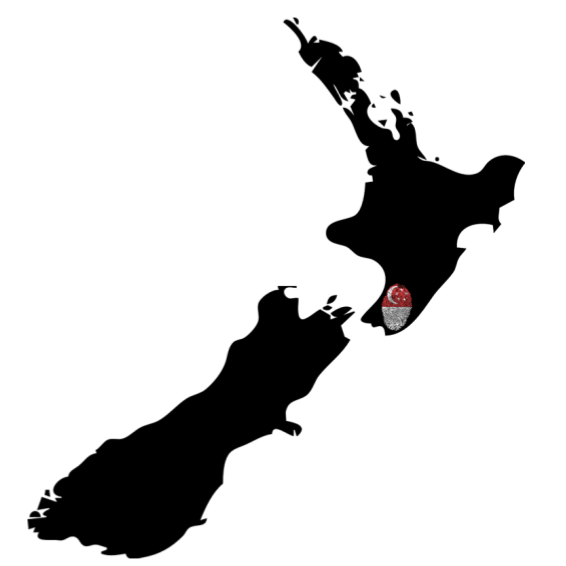
What happened to the Diasporic Academic?
Almost 5 years ago, I re-named my blogging website ‘The Diasporic Academic’, inspired by a keynote presentation given by Wendy Larner at a conference on international education held in Wellington. A diasporic academic by her definition was someone with multiple national affiliations, for example, a researcher from one country based in another country working on a project, or travelling between countries for research purposes, and at the same time, having a role as an intermediary between cultures, for example, translating from one language to another, or providing a culturally nuanced interpretation of things. (To dig deeper into the concept of diasporic academics, I highly recommend reading Larner’s 2015 paper on which the keynote presentation was based, as well as a 2020 book chapter I co-authored with a fellow diasporic academic.)
No doubt I’ve long left my academic ambitions at the door of the once enamoured institution called a university, but my academic sense making and inquiry has been put to good use in my public sector career – demanding clarity in policy definitions, looking for evidence to support claims, assessing the value of outputs and interpreting the validity of outcomes. So I’m proud to say that the ‘academic’ part of my identity has taken on a new form, that of a conscientious public servant.
In terms of living out my ‘diasporic’ potential, it has been an interesting journey through the professional and personal contexts of living and working in Aotearoa New Zealand. Being visibly and audibly different from the ‘European norm’ of everyday affairs, I’ve gone through various degrees of identity crises or conscious raising moments. It has made me become more sensitive to social and cultural assumptions, both my own and those around me, and often wonder about what actually goes on in people’s heads when they have an intercultural interaction. We probably assume ‘nothing’ until a word or gesture prompts an ‘aha’ response. Or we might be deliberate about discovering differences and similarities if we actually talk about cultural differences with genuine interest and respect – and how rare is that!
Let’s talk about names – a diasporic reflection

One of the common assumptions we make is people’s names.
Your name is something you take for granted. You know what it is, the variations in different contexts, how you like to be addressed, how you don’t like to be addressed, what is acceptable and welcomed banter, and what is offensive or inappropriate. To illustrate, I’ll start with the ‘Western’ name, that is, one with a first name, middle name, and a family name: Elizabeth Bennett Brown, an officially recorded name.
If we know or assume that the person is single, officially we would address the person as ‘Miss Brown’. Friends might call the person ‘Liz’ or ‘Lizzy’ or ‘Beth’. When using the name in a professional context, the name could be written simply as ‘Elizabeth Brown’, and perhaps even ‘Lizzy Brown’ if that has been the version used over time or could even be a personal brand that warrants formal usage. If the person was married, we’d say hello to ‘Mrs Brown’ and perhaps infer that ‘Bennett’ was her maiden family name. Or maybe ‘Bennett’ was her actual middle name and her maiden family name is buried in school photos and the like. This is how the office, banks, schools, and various institutions would likely respond to the person with the name of ‘Elizabeth Bennett Brown’.
Now compare this with an officially recorded name of a Chinese Singaporean woman: Lim Bee Choo, Maureen. Lim = family name, Bee Choo, Maureen = given names. ‘Lim Bee Choo’ is the the romanised rendition of the Chinese name based on the dialect group of the person (in this case, Hokkien), ie, it is rendered as it is spoken, as opposed to how the Chinese character would be spoken in standard Mandarin (in this case, ‘林’ pronounced ‘Lin’). Maureen is the given English name. It’s quite common for a Chinese Singaporean to have an English name, and by that I mean a name that is given by the parents, recorded at birth, not a name taken at a later age in life. (Something that can be attributed to Singapore being a former British Colony but of course more complex than that, and maybe something to ruminate on later.)
As this is the person’s officially recorded name, we can assume this is the maiden name. If the person were married and wanted her married name officially recorded (eg, on the national identity card), the most common option would be to apply to have the married name added as an alias. This means the person’s maiden name is the principal name, and by default, the official name. Replacing your maiden name with a married name on an official identity document needs to be done by executing a Change of Name Deed Poll. (It’s extra work and costs money so I’ve yet to know of any married female friends who have done so.)
You could use your married name in other contexts (eg, professional name), and be known as Mrs Maureen Goh. Or to just indicate you’re not single (or to be ambiguous about it), Ms Maureen Lim. (In my mother’s generation, it was common to use your married by simply adding ‘Mrs’ in front of their husband’s name. So if Lim Bee Choo, Maureen married Tan Soo Teck, David, her married name could be Mrs Tan Soo Teck, David, or Mrs David Tan.)
To address Lim Bee Choo, Maureen (married or not) in less formal settings, family might call her ‘Bee Choo’ or ‘Choo’, or ‘Ah Choo’; her peers would call her ‘Maureen’, and would be professionally known as ‘Maureen Lim’, although school communications to parents would list her as Mrs Goh. (Note: I found a very helpful resource on Singapore naming conventions and culture, which also has similar entries for other countries and cultures. Absolutely worth reading if you regularly interact with friends or business associates from non-Western backgrounds.)
If Maureen had to list her official name on documents from the ‘Western world’, she would be careful to list ‘Lim’ as her family name, ‘Bee Choo, Maureen’ as given names. If she was forced to choose single names to fit the given categories, her name might be recorded as: Family Name – Lim; Middle Name – Bee; Given Name – Choo; Preferred Name: Maureen. Automated letters drawing from the categories would simply address her as ‘Choo Lim’, and if it were recorded that she was married, ‘Mrs Choo Lim’. ‘Maureen Lim’, as she was commonly addressed and acknowledged in Singapore, would have an automatic identity makeover in New Zealand.
The Inciting Incident
I love the concept of the inciting incident in film and novels: the event that sets the main character on the journey that will occupy them throughout the narrative. Like how Biff calls Marty McFly ‘chicken’ in Back to the Future, triggering Marty to react with determination to put Biff in his place, keenly aware of how his father was a pushover, an easy target for bullies.
Just like how inciting incidents upset the balance within the main character’s world, inciting incidents in my life in New Zealand have made me question why the people around me held the assumptions they did, and why I reacted the way I did. These inciting incidents have touched on deeply personal things such as my name, the colour of my skin and hair, and my customs. And nothing gets me going more than inciting incidents about my name, the most common inciting incidents of them all.

Imagine Elizabeth Bennett Brown, Lim Bee Choo, Maureen, and myself found ourselves in conversation during tea break at a business seminar in Auckland, and our name tags reflected our names as follows: Lizzy Brown; Choo Bee Lim; Sherrie Lee. Our imaginary (and all too real) conversation could go like this:
SHERRIE LEE
Hi, (reading name tag) Choo Bee, I’m Sherrie (SHAIR-ree).
CHOO BEE LIM
Oh, it’s actually Bee Choo, long story about computer systems, …
SHERRIE LEE
No, I get it! Of course, you’re Bee Choo! (laughs). And you’re either from Malaysia or Singapore right?
CHOO BEE LIM
Born in Malaysia, but grew up in Singapore. Most people call me Maureen, only my family calls me Bee Choo. But when I came to New Zealand, after filling out a couple of forms, my default name is Choo, and a real struggle to get Bee Choo or Maureen recognised as my proper name. (sigh) So it’s not too bad that I managed to get Bee Choo on my name tag, even though it’s the wrong order! (joint laughter) I’m guessing you’re from Singapore?
SHERRIE LEE
Yep, born and bred. Looks like our accents and names give us away. (joint laughter)
LIZZY BROWN joins the conversation.
LIZZY BROWN
Hello, I’m Lizzy.
CHOO BEE LIM
Hi Lizzy, I’m Bee Choo or just call me Maureen.
LIZZY BROWN
Maureen it is, I’m better with English names. Hi (reading name tag) Sherrie (sher-REE).
SHERRIE LEE
(cringing inside but smiling outside) Hi Lizzy. It’s Sherrie (SHAIR-ree), like the drink, rhymes with ‘cherry’.
LIZZY BROWN
Rhymes with cherry, cute, I can remember that (laughs), so Sherrie (SHAIR-ree).
SHERRIE LEE
(more cringing inside but a wider smile outside)
CHOO BEE LIM
We’re just talking about our names and the difficulty with Chinese names.
LIZZY BROWN
Actually I don’t think your Chinese name is too difficult, they look like English words to me, so ‘Choo Bee’, have I got that right?
CHOO BEE LIM
It’s actually Bee Choo, they got the names mixed up. It’s ok, Maureen is fine.
SHERRIE LEE
(attempting neutral small talk) Lizzy, is that short for Elizabeth?
LIZZY BROWN
Yes, it is. And Sherrie (sher-REE), what’s your real name?
SHERRIE LEE
(even more cringing inside) Sherrie (SHAIR-ree) is my real name, my mother gave me that name.
LIZZY BROWN
(laughs) I mean, what’s your Chinese name?
SHERRIE LEE
(with defiance and a steely look in her eyes) I don’t use it.
LIZZY BROWN
I used to have Chinese borders, students studying at uni, and one girl would change her name every semester. First it was Lucy, then it became Anna, not sure what name she does by now (laughs). Maureen, did you have a different name before?
CHOO BEE LIM
No, my name is Maureen, always has been.
LIZZY BROWN
(laughs) Nice talking to you (walks to another group of people).
CHOO BEE LIM and SHERRIE LEE exchange knowing glances and laugh out loud.
The Diasporic Resident
The inciting incident about names was an imaginary movie scene, created from personal and observed experiences of cultural assumptions and hidden meanings, and snatches of phrases from well-meaning individuals not yet familiar with the Chinese diaspora in Southeast Asia. If this is sounding too academic, it might as well be. After all, it will be a part history part anthropology lesson if I start unpacking Chinese naming conventions, cultural norms and expectations, and colonial influences. (Try Chapter 1 of my 2019 thesis if you’re up for some fairly readable academese.)
Inciting incidents like these that help me appreciate who I am in the world, the world of ‘European norms’ in a settler colony, with the Crown gradually unpacking and honouring Treaty obligations, as well as the wider world of migration and multiculturalism. In the immediate world of my living and working, it can often feel like I’m justifying my existence to others around me – why I should be accepted and feel valued. And when I’m considering my relationship with tangata whenua (the Māori, the peoples of the land), I have questions about what it means to be tauiwi (foreigner/immigrant), especially a non-white immigrant. Whereas if I’m operating in a world where the mobility of people and their culture and languages is welcome, then there’s much more freedom to embrace and celebrate differences.
After finishing my PhD, I truly wanted to be an academic operating in that world of migration and multiculturalism, desiring to be that cultural intermediary or broker who could help explain the unspoken thoughts in people’s heads during the kind of conversation Lizzy, Bee Choo and I had. Although I am not that academic I thought I’d be, I can be a diasporic resident in the world of cultures and clashes.
So here’s a challenge to myself and fellow diasporic residents – the next time an inciting incident about your name occurs, will you be that diasporic resident who explains the story behind your name?

